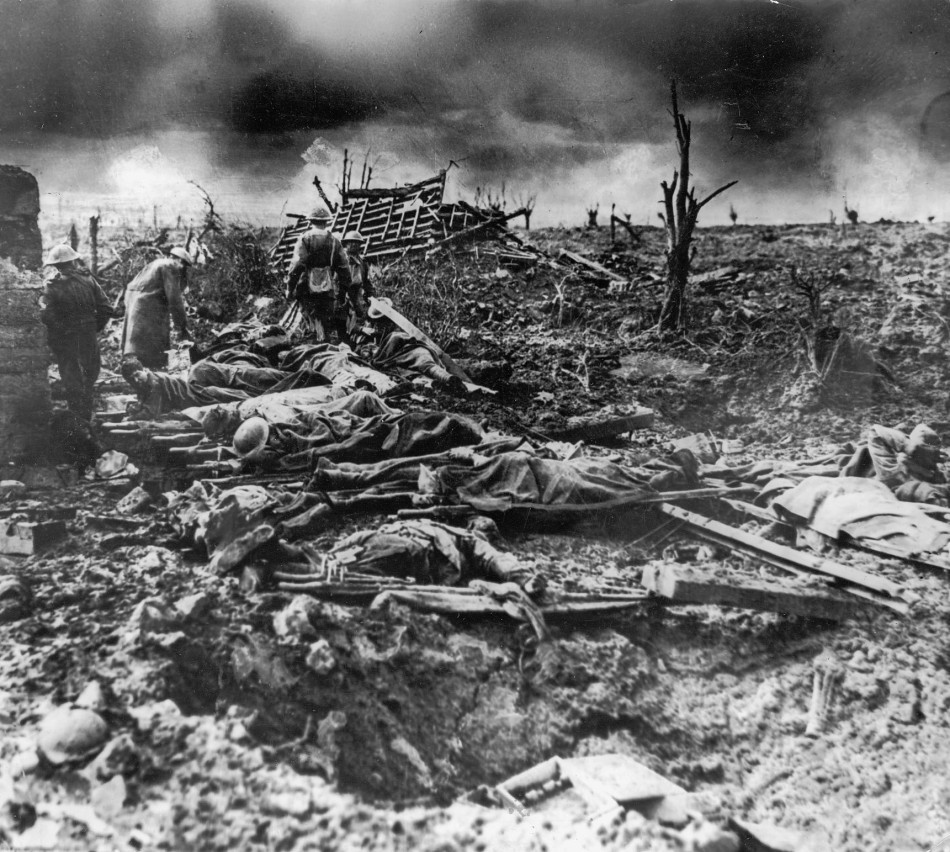It is interesting. If you go back to the Great War and look at the men who returned from the front to be shot for cowardice, or later diagnosed with shell-shock and what we know today as Post-Traumatic Stress Disorder, how society views health and disease, physical and psychological wellbeing, evolves over time.
It is estimated that up to 20% of Gulf War veterans experience PTSD. This number is significantly higher for those on the front-line, although, even those who never left the base, experienced significant trauma from air-raids, their friends and colleagues dying.
Imagine the numbers of people today, the result of global conflicts, who witness horrible things and the effect this will have upon them.
I am not an expert in this area, yet, it strikes me that there are different forms of this condition – the first, where something terrible happens, a person is stunned and that event lives with them in their conscious, disturbing sleep, leading to depression, anxiety and so on, and, another group, who experience the trauma but keep going. Those who despite the horror, somehow manage to sublimate the thoughts and feelings, bury them.
For some, this burying might be effective. Essentially digging such a dark, deep pit and covering it with so much happening that it never surfaces, for others, the events can return unexpectedly at a later time.
The point of this blog relates to the puzzle of this latter group. If you cut your finger and experience pain, it is clear that the cut has caused the pain. If you knock your arm and ten years later because of insidious neurological or sensory damage you experience pain, the cause is less obvious.
The same surely applies here.
For all the women and children, fathers and grandfathers who experience trauma – crossing the Med, escaping from Tikrit, fleeing ISIS, attending a pop concert, it doesn’t matter where, there will be those who experience the pain, seek help and receive support.
For others, the pain will only surface later and then what do you do – what happens when the gap is 10, 20, 30 years or more? ‘What do you mean, you haven’t got over the Gulf War? That was twenty years ago! Pull yourself together…’ asks the naïve one, the one who is unable to appreciate the depths of human suffering.
And the same for other forms of trauma – bullying for example.
If I experience bullying and I am in a fortunate enough position to report this and have the situation corrected (something that we in the 21st Century fool ourselves into believing happens far more than it does), the bully gets their comeuppance, you move-on and with support rebuild your life.
What if there is a delay between the bullying and the symptoms. What if 10 years passes, during which your conscious or sublimated mind manages to maintain a status quo, then… Bang. You are reliving the trauma, the pain, the harassment.
Where do you go from here? Look at the news today – for all the historical cases of sexual abuse coming to the fore in relation to Mr Weinstein, there will be 1000 times that number hidden, people who have moved-on with their lives, burying the past.
The answer?
Well, it is to acknowledge that what is agony for one person might be inconvenience for another – as Victor Frankl says. Trauma is subjective, as is the way we each live those experiences.
Then, to create an environment where those who are bullied or traumatised don’t need to bury the feeling, who can express what is inside, and, those who witness or experience bad things can share. Away from the bleakness of wars and refugees, how many people working in hospitals experience psychological trauma? How many are able to adequately unburden? Within mental health organisations this is standard practice – it is called supervision, this doesn’t exist within most general hospitals. People are left to get on with it.
A culture of safety is one in which people can express their feelings. In which they can say when they aren’t coping or when they are struggling or when the ghosts of the past have come back. No one knows when this might happen and we are all at risk.
Listen, provide people a chance to express the inner thoughts and do not judge.


